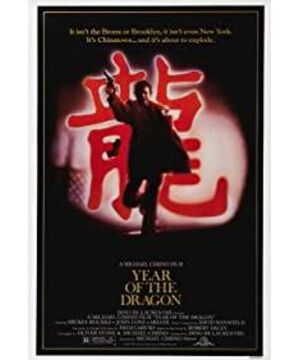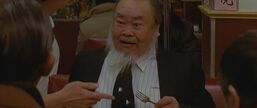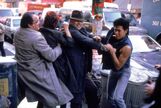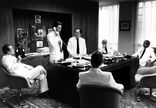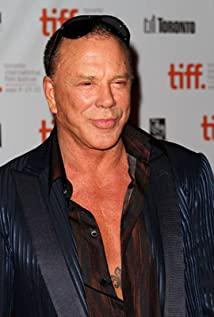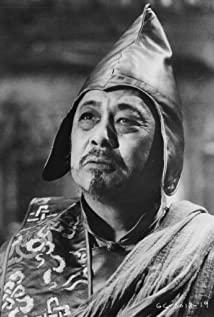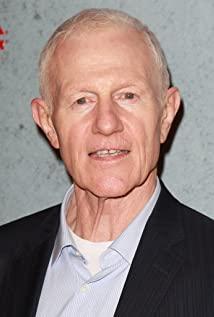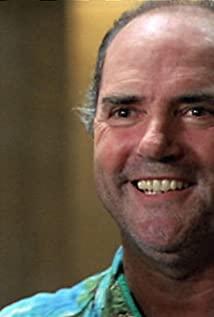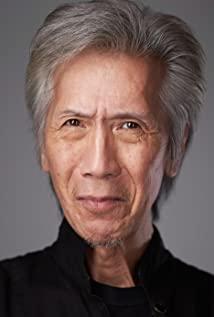It's hard to say what it's like, I vaguely heard the root of his paranoia and selfishness from the white male protagonist's wife and Tracy's mouth: the futility of the Vietnam War made the male protagonist who wanted to make a career feel depressed and unhappy, and he wanted more and more He has made a name for himself in the field of work - even if it is due to his extremely naive heroism.
From the beginning of the funeral to the end of the funeral, there were so many incidents in the middle, and the police officers on duty remained the same. It is more like a dynamic balance of Chinatown ecology, noisy but extremely "stable". The old guys are back in power and relations with Italy are back to normal. people die, people live, as the audience, in such a speechless plot unfolding, what we gain is only full of doubts about the male protagonist.
The female characters are extraordinarily mindless, except for the emotional performance of the male protagonist's wife, which made me get to know what happened in the male protagonist "Twenty Years After Being Stolen" in the extremely dry background introduction, and the others are incomprehensible. . Possibly a model turned actress, Koizumi did not show her proper understanding of this role, and the apartment looked like a model room; she was flatly raped, made love calmly, and the inexplicable nudity often left me at a loss. As "The New York Times" said: "Koizumi's nudes are not as interesting as the Brooklyn Bridge in the background".
And the little Chinese policeman who passionately accused the hero of his shameless behavior - we thought he would quit this job as he said, but he came back suddenly and finally gave the hero what he had been waiting for. intelligence. We have no way of knowing what purpose he is so righteous and awe-inspiring, is it a sense of justice? Or can't find anything else but this job?
Americans know everything, "the bones of countless Chinese workers are buried under the railway", this is what the male protagonist said when he tried to win over the Chinese reporter played by Koizumi. And they knew, but never took it seriously.
It seems that Zunlong's role could have more development, such as his brutality when he threw dead heads at drug lords in Vietnam, and his angry "positive things" when answering reporters' questions. He was so ruthless: after finding someone to kill his father-in-law and successfully ascending the throne, he killed his subordinates, stalking the police's wife by doing charity to take advantage of the other party's weakness, and finally when he was on the run for his life and death, he shot his bodyguard without thinking. Before watching the film, I thought that Zunlong's overly dazzling smile was a hindrance to his acting skills, but I found that in this film, he has precise control over his expressions: a tasteless and dull smile can also appear on his face.
Although our Joey Tai finally died abruptly for the sake of the plot, it was more of a hole, allowing us to have a quick glimpse into the "ecology" of Chinese gangsters in Chinatown in the 1990s through Zunlong's performance.
View more about Year of the Dragon reviews


